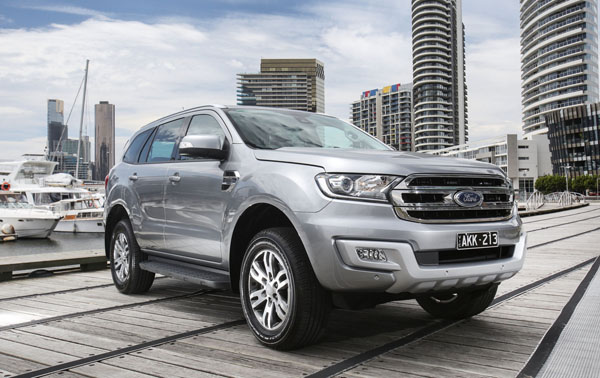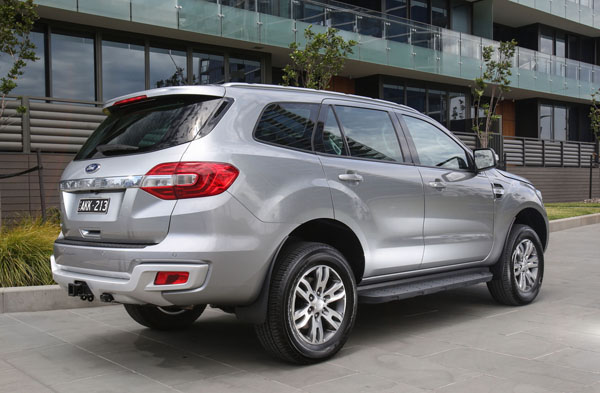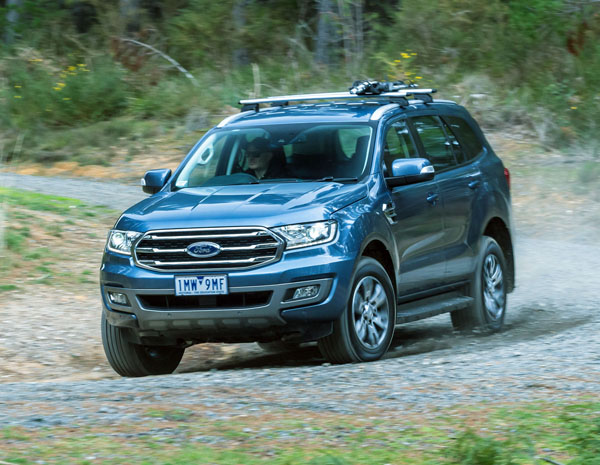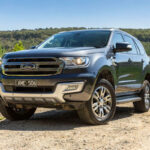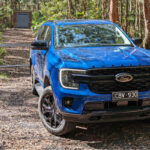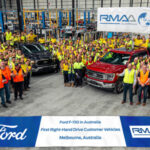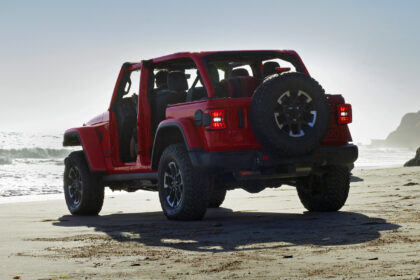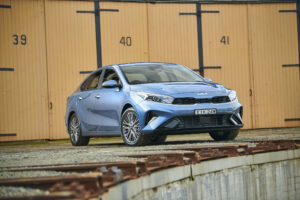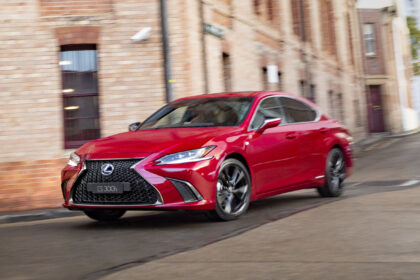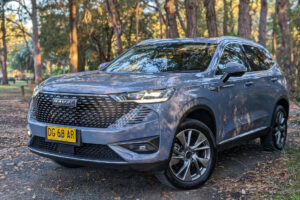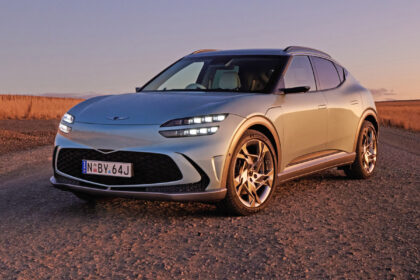Ford Everest is a large 4WD / SUV that’s been sold overseas since 2003 but didn’t come to Australia until the release of the third generation model in October 2015. It is a serious off-roader that’s built on the same platform as Ford Ranger ute.
Everest is just under five metres long and over two metres wide so has a spacious cabin capable of carrying up to seven occupants. The entry-level Ambients have seating for five. Trend and Titanium models have the rearmost pair of twin seats as standard.
We’ve seen plenty of optional rear seats in the Ambiente so it shouldn’t be too hard to find one.
The second row slides forward far enough to improve access to the back row.
The higher specced Trend and Titanium models have running boards, which makes for easier entry and exit, but can get in the way of the landscape during very serious off-road adventures.
The second row seats have a 60:40 split and the third row 50:50. With all seats in place there is a reasonable 450 litres of storage space left. Lowering the third seats increases that to 1050 litres while with all five rear seats down it can carry up to 2010 litres.
All Everest models get dual-zone climate control. There are air conditioning controls at the back of the centre console for rear passengers.
All Everests are powered by Ford’s 3.2-litre five-cylinder turbo-diesel Duratorq engine as used in the Ranger. It generates 147 kW (200hp) of power at 3000 rpm and torque of 470 Nm from 1750 to 2500 revs. It’s not the quietest diesel engine we’ve sat behind, but shouldn’t be an issue with a vehicle of this sort.
The only transmission is a six-speed automatic. It uses a tried-and-tested transfer-case set-up and high- low-ratio gears. A “proper” 4WD in the minds of the purists.
Towing capacity of up to 3000 kg is offered if the trailer is braked.
For off-road driving Everest uses Ford’s Terrain Management System (TMS) to alter throttle response, transmission, traction control and an intelligent four-wheel drive system to maximise performance under varying conditions. From a knob on the centre console the driver can select from normal, snow, gravel, grass, sand or rock.
The control also incorporates hill descent control, which can be activated in any conditions. An electronic locking rear differential helps prevent the rear wheels from spinning while driving off-road, increasing traction in difficult terrain. It can be locked automatically when using off-road TMS modes, or switched manually using the differential lock button.
All Everest models employ an 8.0-inch colour touchscreen for infotainment system display and control together with a 4.2-inch colour instrumentation screen for driving data. The system uses Ford’s Sync3 connectivity system with Applink and enhanced voice control. It syncs with both Apple CarPlay and Android Auto.
Ford Everest has a five-star ANCAP rating. All have seven airbags with curtain airbags protecting all three seat rows; enhanced ABS brakes; reversing camera and rear parking sensors and trailer sway control.The Trend adds halogen daytime running lights; front parking sensors; adaptive cruise control with forward collision alert; lane-keeping assist; and automatic high-beam control.
Titanium tops off the safety feature list with tyre pressure monitoring; blind spot monitoring; active park assist; LED daytime running lights; and, one of our favourites, rear cross-traffic alert which warns of approaching vehicles when reversing out of front-in parking spots.
Ford is approaching its 100th year in Australia and has been a major player here for many decades. There are dealers in most areas, even in the remote outback.
Uncommon spare parts may not be stocked in all dealers but can usually be shipped out within a few business days. Pricing is about average for this class of tough working vehicles.
Insurance is generally low-to mid-range with most companies.
WHAT TO LOOK FOR
Given that it’s a serious 4WD more Everests are likely to have been used off-road than is common in this class. Check for scratches on the body side and front bumper corners.
Look underneath for any damage, particularly in the engine, transmission areas.
Muddy carpets can be another sign of off-road use, ask permission from the seller to lift them to check underneath.
Check the interior for the sort of damage caused by children and by incorrect loading of the luggage area.
Some owners have told us they’re getting false readings on the content of the AdBlue tank. If so, it might be an idea to check with a Ford dealer, as the engine won’t start if the AdBlue isn’t available. Ford dealers can recalibrate the system.
All changes in the automatic transmission should be smooth and all-but unfelt. For some reason the change from fifth to top (sixth) can be harsh at times.
The Everest was recalled to check the side air-bags were defective. Check this has been done. Details of all recalls of this vehicle, and all others, are detailed in a separate section of the feature.
HOW MUCH?
Expect to pay from $25,000 to $34,000 for a 2015 Ford Everest Ambiente; $28,000 to $38,000 for a $31,000 to $41,000 for a 2015 Titanium or a 2017 Trend; $32,000 to $44,000 for a 2018 Ambiente; $36,000 to $48,000 for a 2017 Titanium; $42,000 to $58,000 for a 2018 Titanium; and $48,000 to $51,000 for a 2019 Titanium.
CAR BUYING TIP
Look for simplicity in a car if you want to save money by doing your own repairs. It makes sense to buy a car for which a workshop manual is available.
RECALLS: To browse recalls on all vehicles go to the ACCC at: www.productsafety.gov.au/products/transport/cars/




